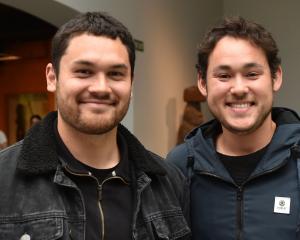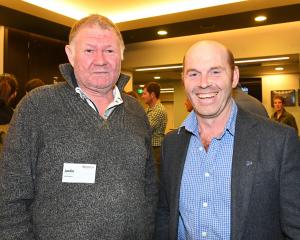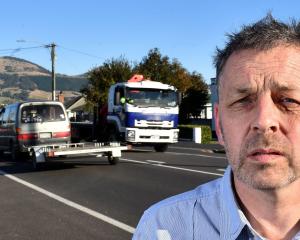Dunedin iwi consultancy Aukaha has provided 10 recommendations for the governance of the planned new drinking water, stormwater and wastewater provider for the South Island.
It calls for a co-governance model based on a Treaty partnership between Ngai Tahu and the new water services regulator, Taumata Arowai.
It also says Maori communities should be prioritised when building Three Waters infrastructure.
The Government plans to amalgamate the water services of 67 councils into four regional water entities.
As a part of those plans, the vast majority of the South Island, based along Ngai Tahu territorial boundaries and excluding the very top of the island, would be served by one water provider.
In a report to the Otago Southland Three Waters Office on behalf of five lower South Island papatipu runanga, Aukaha said until now Ngai Tahu’s leadership role in the South Island had been "constrained and encumbered" by the current legislative and regulatory framework in place under the Resource Management Act.
It said the runanga envisioned a governance model for the new water services provider that actively recognised and provided a platform for the "rangatiratanga" of Ngai Tahu.
It strongly encouraged actions that would improve water quality, but present measures of freshwater health completely neglected Maori perspectives, the report said.
Provision of three waters infrastructure should be based on criteria that referenced health and wellbeing and social connection and engagement as important factors in the identification of areas requiring water services upgrades, it said.
Much higher proportions of Maori lived in "deprived areas" than non-Maori and investment in three waters infrastructure in those areas would enhance the health and wellbeing of those communities to the benefit of all.
"Maori communities and papatipu marae have often been unable to benefit from three waters infrastructure in Otago.
"Papatipu runanga often have limited access to town water supplies and in many cases are still reliant on septic tanks for effluent.
"Given the increasing demands that are placed on ka runaka in terms of resource management, consultation and consenting, it is absurd that these communities are themselves not benefiting from the provision of a modern three waters system."
The report called for technological innovation and maximising water use to make water services more sustainable.
Resilience in the face of climate change was a necessary consideration.
The runanga strongly opposed water services ever being privatised, and said if that were to occur, there should be a caveat that gave iwi a first right of refusal. Maori should be given a chance to invest and engage with the infrastructure upgrades, including the predicted economic benefit of 9000 full-time jobs over the next 30 years.
The report was part of Otago Regional Council urban growth and development team leader Kyle Balderston’s Three Waters update to councillors last week.
The role of iwi in the new system was "somewhat misunderstood", he said, as Ngai Tahu did not have an interest in Three Waters asset ownership. The "assets" were seen as a financial liability requiring billions of dollars in investment for the next three decades.
The key role for iwi was through governance to facilitate rangatiratanga over freshwater, he said.
"Giving effect to [Treaty of Waitangi] obligations generally and existing treaty settlements specifically is also another key expectation of central government and iwi alike."












